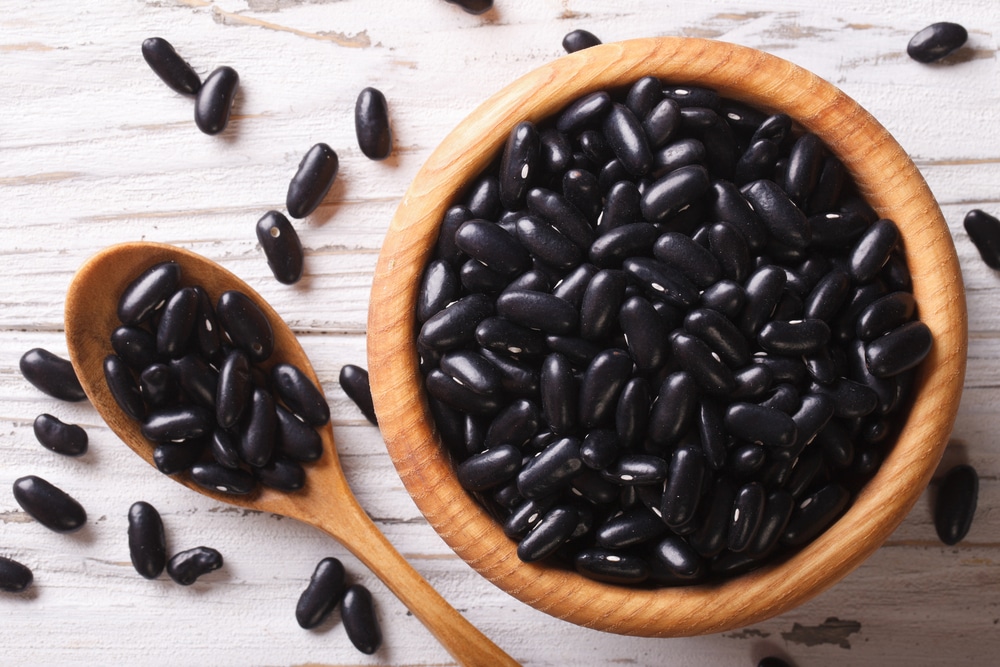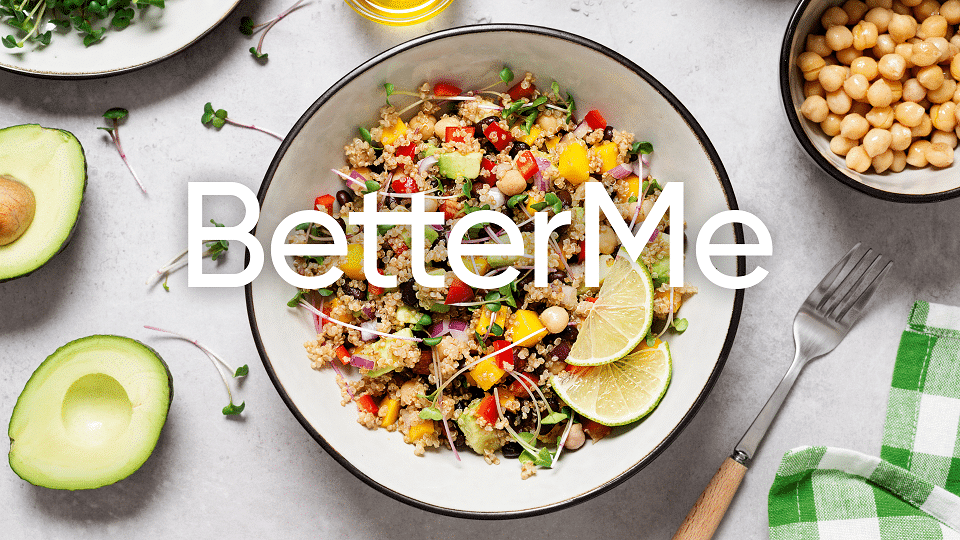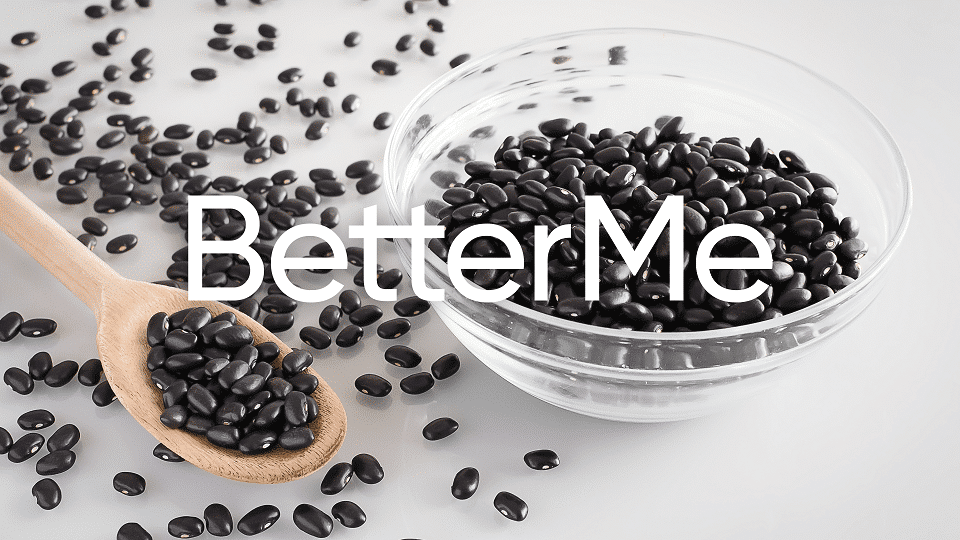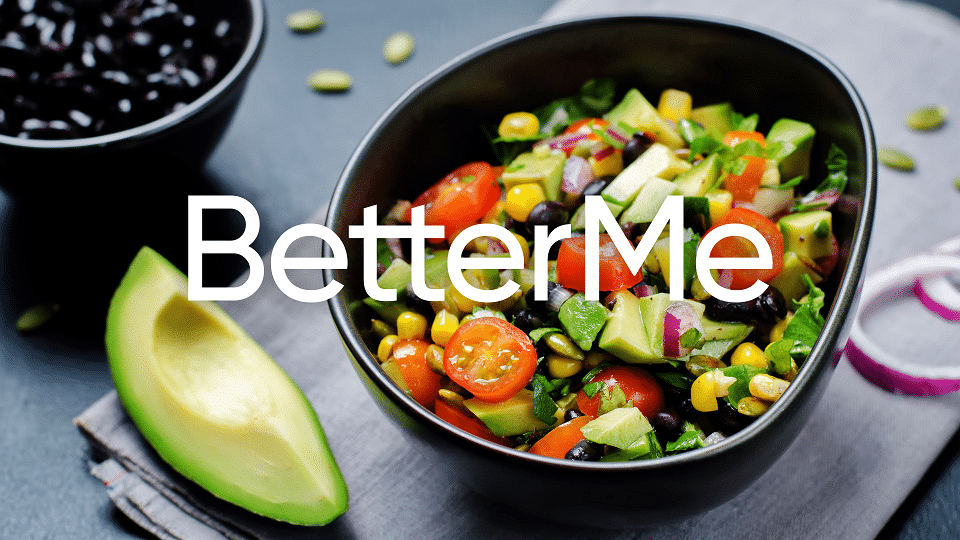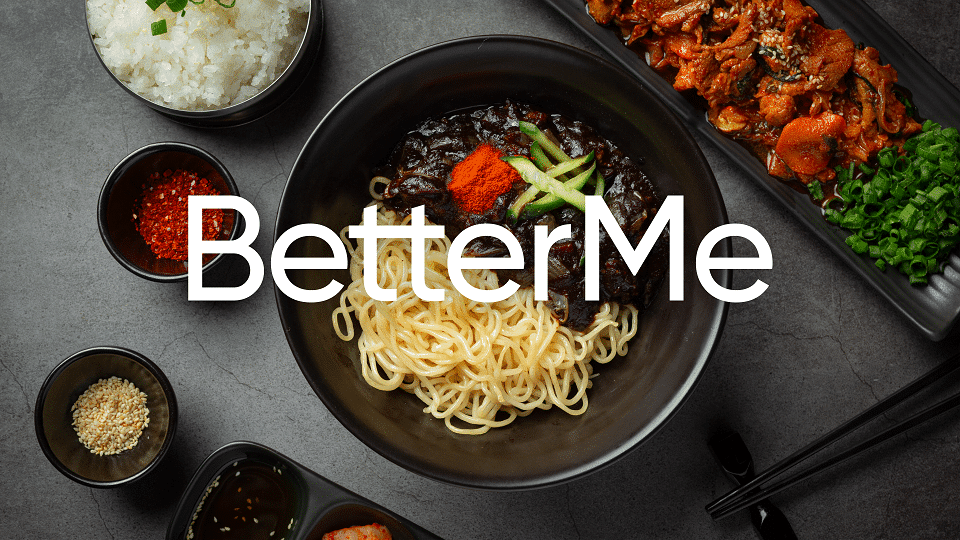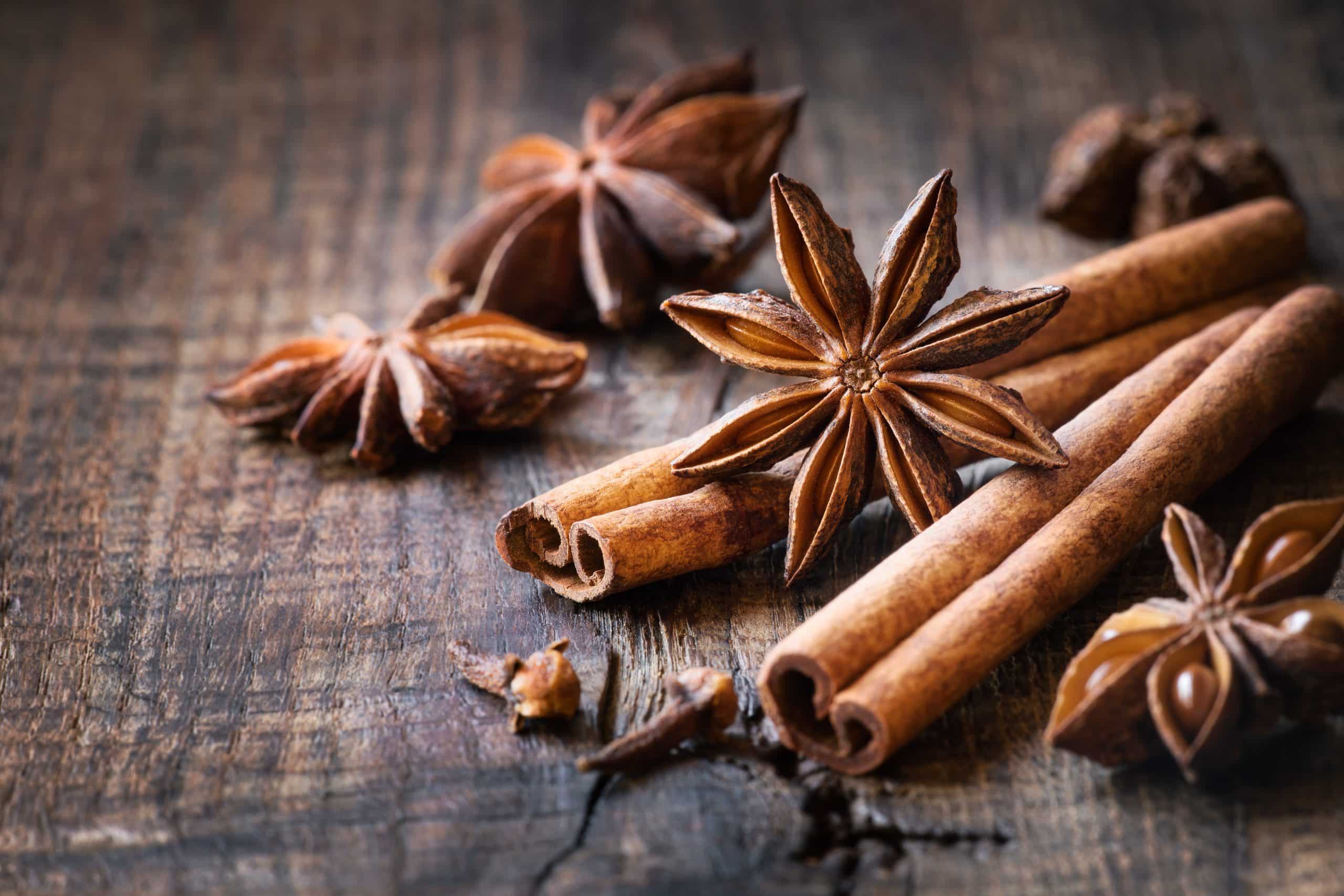You may know black beans as turtle beans. They are classified as legumes and are very popular in Central and South America. Like other types of beans, they have a high protein and fiber content. An interesting fact about black beans is that they are used in the national dish of Brazil, feijoada. Black beans can be prepared in a variety of ways and be incorporated into many meals. We explore all the facts about black beans nutrition 100g including the health benefits, side effects, and how to eat them.
Get your personalized
meal plan!
Black Beans Nutrition Facts
A 100g of black beans nutrition facts are as follows (3):
- Calories: 132
- Protein: 8.9 grams
- Carbs: 24 grams
- Fiber: 8.7 grams
- Fat: 0.5 grams
- Sugar: 0.3 milligrams
- Sodium: 1 milligram
- Potassium: 355 milligrams
Black beans also contain iron, calcium, vitamin A, thiamin, magnesium, and manganese. They are also a good source of folate which helps produce red blood cells and prevent neural tube defects during pregnancy. To increase the absorption of iron, eat black beans together with vitamin C-rich foods such as tomatoes and vegetables.
The glycemic index of black beans is moderately low. This means that you can enjoy them without worrying that they will cause a spike in your blood sugar. When soaked and then boiled, the glycemic index is about 20. If you use a pressure cooker to prepare black beans or eat canned beans, the glycemic index is 30 (8).
Most of the very little fat in black beans is monounsaturated, polyunsaturated, and omega-3 fatty acids. These beans have no trans fats and contain very little saturated fats. So, even on a weight loss diet, you can still enjoy black beans.
Benefits Of Black Beans
Black beans are a source of many minerals, vitamins, and antioxidants, all of which help promote good health. Below are the black beans benefits and side effects:
Source Of Plant-Based Protein
Black beans are an excellent protein source. They are also rich in iron and other minerals. So, vegetarians and vegans who don’t consume animal protein may benefit from eating turtle beans.
Protein helps build tissues and muscle, repair damaged cells and act as enzymes or carriers. Protein also has the highest thermic effect of food (TEF) of 15 to 30%, while TEF of carbs is 5 to 10%. This means more energy is expended during the digestion, absorption, transport, and storage of protein compared to carbs and fats. Protein is also the most filling macronutrient (1).
Reduces Risk Of Diabetes
High-fiber foods help in the management of diabetes (10).
Research shows that individuals with type 1 diabetes who eat diets rich in fiber have improved blood glucose levels. Those with type 2 diabetes also benefit from high fiber diets. A 2017 study sought to find out the glycemic response when black beans and chickpeas were added to white rice. At the end of the study, it was concluded that a combination of black beans, chickpeas, and rice improves glycemic response compared with rice alone (9).
Helps Build Healthy Bones
The calcium, potassium, phosphorus, magnesium, and zinc in black beans are all important for healthy bones. Osteoporosis and low bone mass are estimated to affect more than half of people over the age of 50 (11). Eating foods rich in the above micronutrients may help reduce the risk of bone loss and skeletal failure.
Most people do not consume enough calcium. While people may opt for calcium supplements, research shows that they are not as effective in improving skeletal health. It is best to obtain calcium and other micronutrients from dietary sources (14). Adding cheese or yogurt to your black bean dish can help you increase your calcium intake.
Read More: Black Lentils Nutrition Facts: Are They The Best Lentils For Weight Loss?
Potent Source Of Antioxidants
Antioxidants are compounds that help destroy free radicals which are associated with chronic diseases such as diabetes, heart disease, stroke, and cancer. Black beans contain phytonutrients such as anthocyanidins, saponins, kaempferol, and quercetin which possess antioxidant properties.
The coating is particularly rich in phytonutrients. One study in mice found that black bean seed coat extract which contains flavonoids and saponins may reduce hepatic lipogenesis and stimulate cholesterol excretion (7)
Lowers Risk Of Heart Disease
Heart disease is the number one killer worldwide. The fiber, folate, potassium, vitamin B6 and phytonutrients in black beans are all essential for optimal heart health. Consumption of fiber has been shown to reduce total serum cholesterol and low-density lipoprotein concentrations (6).
Potassium on the other hand helps maintain healthy blood pressure and prevent the formation of plaques. Generally, higher dietary potassium is linked to reducing the risk of stroke, coronary heart disease, and cardiovascular disease (13).
Quercetin is a flavonoid that exhibits possible cardioprotective effects. The antioxidant may inhibit LDL oxidation, reduce adhesion molecules, and decrease inflammatory markers (19). Finally, saponins are antiatherosclerotic, vasodilators, which might help reduce blood cholesterol. All these mechanisms may help reduce the risk of cardiovascular diseases (18).
Reduces Risk Of Cancer
Emerging evidence shows that populations with a high legume consumption have a lower risk of cancer and degenerative conditions (4). The selenium, fiber, and saponins may be responsible for their anti-cancer effects.
Some studies show that high levels of selenium in the diet may help reduce the risk of certain cancers such as breast, gastric lung, esophageal, and prostate cancer (16). However, high selenium exposure may have different effects on different types of cancer.
A more plant-based diet in general has also been associated with reduced risk of cancer in general.
Aids In Weight Loss
Eating black beans may help promote weight loss. This is because they are high in fiber and protein. The calories in black beans,100 grams, are about 132. You are thus able to enjoy this nutrient-dense, low-calorie bean variety without having to worry about your calorie intake.
Fiber helps promote satiety keeping you full longer. This removes the need for unnecessary snacking or overeating that often results in weight gain. Studies suggest that eating about 25 to 30 grams of fiber daily should be sufficient to aid in weight loss (5).
Protein on the other hand helps build muscle when combined with exercise thus increasing your metabolism as muscle burns more calories than fat. Eating a protein-rich diet also promotes satiety. Some experts recommend that you should aim to eat at least 1.2 to 1.6 grams of protein per kilogram of body weight for weight loss (20).
Looking for a way to break the vicious cycle of weight loss and tone up all the jiggly parts? Watch the extra pounds fly off and your muscles firm up with the BetterMe app!
Black Beans Side Effects
Black beans are safe for human consumption. There are, however, a few sensitive people who need to watch their consumption of black beans.
Allergies
Even though black bean allergies are uncommon, anyone with peanut or soy allergies should consider getting tested (12). If you are allergic to one type of beans (pinto, green, or kidney beans), it may mean you are sensitive to other types.
Digestive Issues
Eating black beans can cause digestive issues such as gas and stomach discomfort. This is because they contain oligosaccharides known as galactans. Galactans are complex sugars that are indigestible by the body because they lack an enzyme known as alpha-galactosidase (15).
If you experience these symptoms, eat these beans in small amounts. Soaking dried black beans in water for longer and draining the water used to soak the beans may also help. If available, buy sprouted beans instead of dried beans.
Some Varieties May Be High In Sodium
Canned black beans contain a relatively high sodium content compared to home-cooked ones. Luckily there is a simple solution – just drain and rinse the beans in water. Research shows that draining lowers the Sodium content by about 36% while draining and rinsing lowers it by about 41% (2).
Also, check the sodium content of black beans when shopping. Go for brands of black beans that have a low sodium content. Consumption of too much sodium may increase your blood pressure if you have hypertension (17).
Read More: Chia Seeds Benefits: The Benefits of Consuming These Tiny Oval-Shaped White and Black Seeds
How To Eat Black Beans
Black beans are either dried or canned and can be found in grocery stores throughout the year. If you are using the canned variety, go for those with low sodium content. Since black beans can be incorporated into any meal, the possibilities of their use are endless. Get creative and find out what recipes you can create.
Try the following:
- Make a black bean burger. Just mash the beans, mix in breadcrumbs and spices of your choice and an egg then bake in the oven.
- Use turtle beans as a pizza topping.
- Make black bean dip and accompany it with your favorite whole-wheat crackers.
- Blend black beans into your breakfast smoothie. Although this may sound a little odd, black beans work well in chocolate recipes.
- Prepare black bean soup by mixing the beans with tomatoes, onions, and your favorite spices.
- Combine black beans, onions, tomatoes, lettuce, avocado, cheddar cheese, and salsa to prepare a simple taco salad.
- Use black beans as potato stuffing and in salads.
The Bottom Line
Nutrition is an essential part of preventing chronic conditions and nutrient deficiencies. Eating nutrient-dense foods rich in fiber, vitamins, and minerals go a long way in promoting good health. Consumption of black beans helps reduce the risk of chronic diseases and aids in weight loss. What’s more, is the versatility of black beans that allows you to enjoy them at any time of the day.
DISCLAIMER:
This article is intended for general informational purposes only and does not serve to address individual circumstances. It is not a substitute for professional advice or help and should not be relied on for making any kind of decision-making. Any action taken as a direct or indirect result of the information in this article is entirely at your own risk and is your sole responsibility.
BetterMe, its content staff, and its medical advisors accept no responsibility for inaccuracies, errors, misstatements, inconsistencies, or omissions and specifically disclaim any liability, loss or risk, personal, professional or otherwise, which may be incurred as a consequence, directly or indirectly, of the use and/or application of any content.
You should always seek the advice of your physician or other qualified health provider with any questions you may have regarding a medical condition or your specific situation. Never disregard professional medical advice or delay seeking it because of BetterMe content. If you suspect or think you may have a medical emergency, call your doctor.
SOURCES:
- A high-protein diet for reducing body fat: mechanisms and possible caveats (2014, ncbi.nlm.nih.gov)
- All About Beans Nutrition, Health Benefits, Preparation and Use in Menus — Publications (2019, ag.ndsu.edu)
- Calories in 100 G Black Bean (n.d., nutritionix.com)
- Common Beans and Their Non-Digestible Fraction: Cancer Inhibitory Activity—An Overview (2013, mdpi.com)
- Dietary fiber and weight regulation (2001, pubmed.ncbi.nlm.nih.gov)
- Fiber and cardiovascular disease risk: how strong is the evidence? (200, pubmed.ncbi.nlm.nih.gov)
- Flavonoids and saponins extracted from black bean (Phaseolus vulgaris L.) seed coats modulate lipid metabolism and biliary cholesterol secretion in C57BL/6 mice (2014, pubmed.ncbi.nlm.nih.gov)
- GI Search (n.d., glycemicindex.com)
- Glycemic Response to Black Beans and Chickpeas as Part of a Rice Meal: A Randomized Cross-Over Trial (2017, mdpi.com)
- Impact of Dietary Fiber Consumption on Insulin Resistance and the Prevention of Type 2 Diabetes (2018, academic.oup.com)
- Osteoporosis: the role of micronutrients (2005, academic.oup.com)
- Peanut, tree nut, and seed allergy – Australasian Society of Clinical (2019. allergy.org.au)
- Potassium Intake, Stroke, and Cardiovascular Disease: A Meta-Analysis of Prospective Studies (2011, sciencedirect.com)
- Review: Nutritional strategies for skeletal and cardiovascular health: hard bones, soft arteries, rather than vice versa (2016, ncbi.nlm.nih.gov)
- Role of polysaccharides in food, digestion, and health (2017, ncbi.nlm.nih.gov)
- Selenium Exposure and Cancer Risk: an Updated Meta-analysis and Meta-regression (2016, ncbi.nlm.nih.gov)
- Sodium Intake and Hypertension (2019, mdpi.com)
- Structural characteristics, bioavailability, and cardioprotective potential of saponins (2018, ncbi.nlm.nih.gov)
- Therapeutic potential of quercetin as a cardiovascular agent (2018, pubmed.ncbi.nlm.nih.gov)
- The role of protein in weight loss and maintenance (2005, academic.oup.com)
